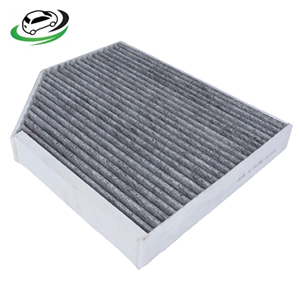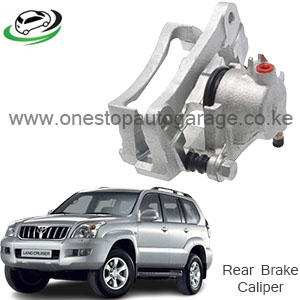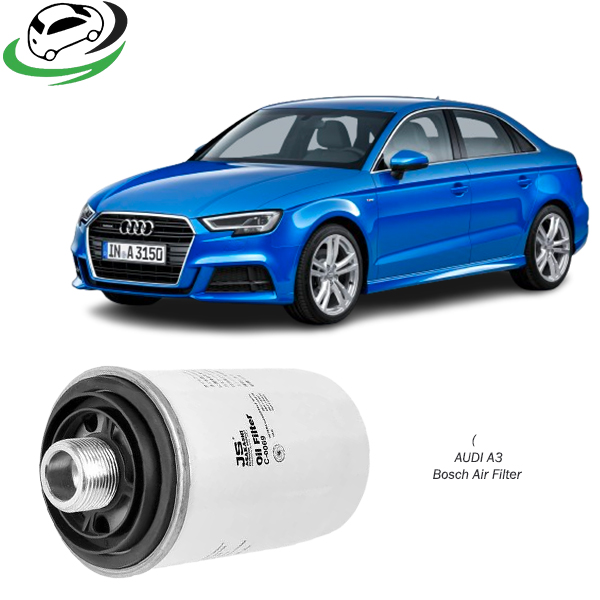-12%
AUDI A3/A4/A5/A6/A8/Q3/Q5 Bosch Oil Filter C0069
The oil filter is a crucial component in the engine lubrication system of any vehicle. It plays a pivotal role in ensuring that the engine runs smoothly and efficiently by filtering out contaminants from the engine oil. This simple yet highly important part prevents dirt, metal particles, and other debris from circulating in the oil, which can cause severe damage to the engine over time. In this detailed explanation, we’ll explore the function of oil filters, their types, the benefits they offer, and best practices for their maintenance and replacement.
Function of an Oil Filter
The primary function of an oil filter is to clean the engine oil by trapping and holding onto contaminants. Engine oil acts as a lubricant for moving parts inside the engine, reducing friction, minimizing wear, and regulating engine temperature. However, as oil circulates through the engine, it picks up dirt, metal shavings, carbon deposits, and other harmful particles. These contaminants, if not filtered out, can cause engine wear, lead to blockages in oil passages, and ultimately reduce the engine’s efficiency and lifespan.
1. Trapping Contaminants
Oil filters are designed with filtering media (typically made from paper, synthetic fibers, or a combination of both) that trap impurities before they circulate through the engine. This ensures that the oil remains as clean as possible, free from harmful particles that can damage internal components like bearings, pistons, and crankshafts.
2. Regulating Oil Flow
An oil filter also plays a key role in maintaining proper oil flow within the engine. As the oil circulates through the engine, it passes through the filter before returning to lubricate the engine components. The filter regulates the flow by allowing clean oil to pass through while capturing debris. In some filters, there’s a bypass valve that ensures oil flow continues even if the filter becomes clogged, although this allows unfiltered oil to flow temporarily to prevent engine starvation.
3. Maintaining Oil Pressure
Oil filters also contribute to maintaining proper oil pressure. If an oil filter becomes clogged and cannot pass oil effectively, it can cause a drop in oil pressure, which may trigger warning lights on the dashboard. The bypass valve helps to prevent such a scenario by allowing oil to bypass the filter, but it’s a temporary solution. Regular maintenance of the oil filter ensures consistent oil pressure and engine performance.
Types of Oil Filters
There are different types of oil filters used in vehicles, each with unique designs and functions. The choice of oil filter depends on the vehicle’s specifications, the type of oil used, and the driving conditions.
1. Full-Flow Oil Filters
Full-flow oil filters, also known as primary filters, are the most common type of oil filter found in most vehicles. These filters are designed to filter all of the oil that passes through the engine. Full-flow filters use a relatively porous filtering media that allows oil to pass through quickly while still trapping larger particles. This ensures that the engine receives the necessary oil flow for lubrication, even in cold conditions when the oil is thicker.
2. Secondary (Bypass) Oil Filters
Secondary or bypass oil filters work alongside the full-flow filter to provide additional filtration. Instead of filtering all the oil at once, bypass filters filter a small portion of the oil and remove finer particles that a full-flow filter might miss. Bypass filters are often used in heavy-duty applications, such as commercial trucks or industrial machinery, where cleaner oil is necessary for the engine’s long-term health.
3. Cartridge Oil Filters
Cartridge oil filters are typically found in older vehicles or some modern cars that use a reusable housing. These filters consist of a replaceable filter element that is inserted into a permanent metal housing. Unlike spin-on filters, which are completely replaced during oil changes, cartridge filters only require the inner filter to be replaced, reducing waste and making them more environmentally friendly.
4. Spin-On Oil Filters
Spin-on oil filters are the most common type of oil filter used in modern vehicles. These filters are self-contained units that screw onto the engine block. When it’s time for an oil change, the entire filter is replaced, making them easy to install and maintain. The filter contains a metal casing, filtering media, and sometimes a pressure relief valve to ensure proper oil flow even when the filter becomes clogged.
5. Magnetic Oil Filters
Magnetic oil filters use a magnetic core inside the filter to attract and capture metal particles suspended in the oil. These filters are especially useful in engines where wear and tear produce metal shavings that need to be removed. They are often used in performance vehicles or industrial engines where reducing wear is critical to prolonging engine life.
Benefits of Oil Filters
Using a high-quality oil filter provides numerous benefits for vehicle performance, engine longevity, and overall maintenance costs.
1. Prolonged Engine Life
The most significant benefit of using an oil filter is that it helps prolong engine life. By filtering out contaminants and impurities, the oil filter ensures that only clean oil circulates through the engine, reducing wear and tear on critical engine components. This keeps the engine running smoothly and extends its operational lifespan.
2. Maintaining Engine Efficiency
A clean oil filter helps maintain engine efficiency by ensuring that the oil flows freely and without obstruction. When the oil filter becomes clogged, it restricts the flow of oil, leading to increased friction between moving parts. This can result in poor engine performance, decreased fuel efficiency, and potentially severe engine damage. Regular replacement of the oil filter keeps the engine running at peak efficiency.
3. Preventing Engine Damage
Dirty oil can cause significant damage to engine components by creating abrasive particles that wear down surfaces over time. In extreme cases, contaminants can lead to engine blockages or failures. Oil filters prevent this damage by trapping harmful particles before they can circulate through the engine. This prevents the buildup of sludge, corrosion, and premature engine failure.
4. Fuel Efficiency
A well-functioning oil filter contributes to better fuel efficiency. When the engine runs smoothly with clean oil, it requires less energy to operate, which can improve fuel economy. In contrast, a clogged or dirty oil filter forces the engine to work harder, consuming more fuel in the process.
5. Environmental Benefits
Regularly replacing oil filters contributes to reducing vehicle emissions. Contaminated oil can increase the production of harmful exhaust gases, which can contribute to air pollution. By keeping the oil clean, the oil filter helps the engine burn fuel more efficiently, which leads to reduced emissions and a smaller environmental footprint.
Maintenance of Oil Filters
1. Regular Replacement
The most critical aspect of maintaining an oil filter is ensuring it is replaced regularly. Oil filters are typically replaced during routine oil changes, which should be done according to the vehicle manufacturer’s recommendations. For most vehicles, this is every 3,000 to 5,000 miles, though some modern vehicles can go as long as 7,500 miles or more between oil changes, especially when using synthetic oil.
2. Using the Correct Oil Filter
It’s essential to use the right oil filter for your specific vehicle. Oil filters come in various sizes and designs, so it’s important to refer to the vehicle’s owner’s manual or consult a professional to ensure that the correct filter is used. Using the wrong filter can lead to poor filtration, oil leaks, or reduced oil pressure, all of which can damage the engine.
3. Signs of a Clogged or Failing Oil Filter
Several warning signs may indicate that an oil filter needs to be replaced:
- Low Oil Pressure Warning: If the oil pressure warning light comes on, it may be a sign that the oil filter is clogged, restricting oil flow to the engine.
- Noisy Engine: A clogged filter can cause oil starvation, which may result in unusual engine noises such as ticking or knocking as the engine struggles to stay lubricated.
- Dirty Oil: If the oil appears thick, dirty, or sludgy, it’s a sign that the oil filter is no longer effective at trapping contaminants.
- Poor Performance: Reduced engine performance, such as sluggish acceleration or decreased fuel efficiency, can also indicate that the oil filter is compromised and needs to be replaced.
4. DIY vs. Professional Replacement
Replacing an oil filter is a relatively straightforward task, often included as part of a routine oil change. Many vehicle owners choose to perform this task themselves, especially if they have the necessary tools and experience. However, for those who prefer not to handle their vehicle maintenance, a professional mechanic can quickly and efficiently replace the oil filter during a scheduled oil change service.
Conclusion
The oil filter is a small yet vital component of a vehicle’s engine system, ensuring that the oil remains clean and free from harmful contaminants. By filtering out dirt, metal particles, and other impurities, the oil filter protects the engine from premature wear and damage, extends its lifespan, and enhances overall vehicle performance. Regular maintenance of the oil filter, including timely replacement during oil changes, is essential for maintaining engine efficiency and preventing costly repairs. Vehicle owners who prioritize proper oil filter care can enjoy a smoother, more reliable driving experience and contribute to a cleaner environment by reducing emissions and improving fuel efficiency.
Follow us on Facebook for more parts.





